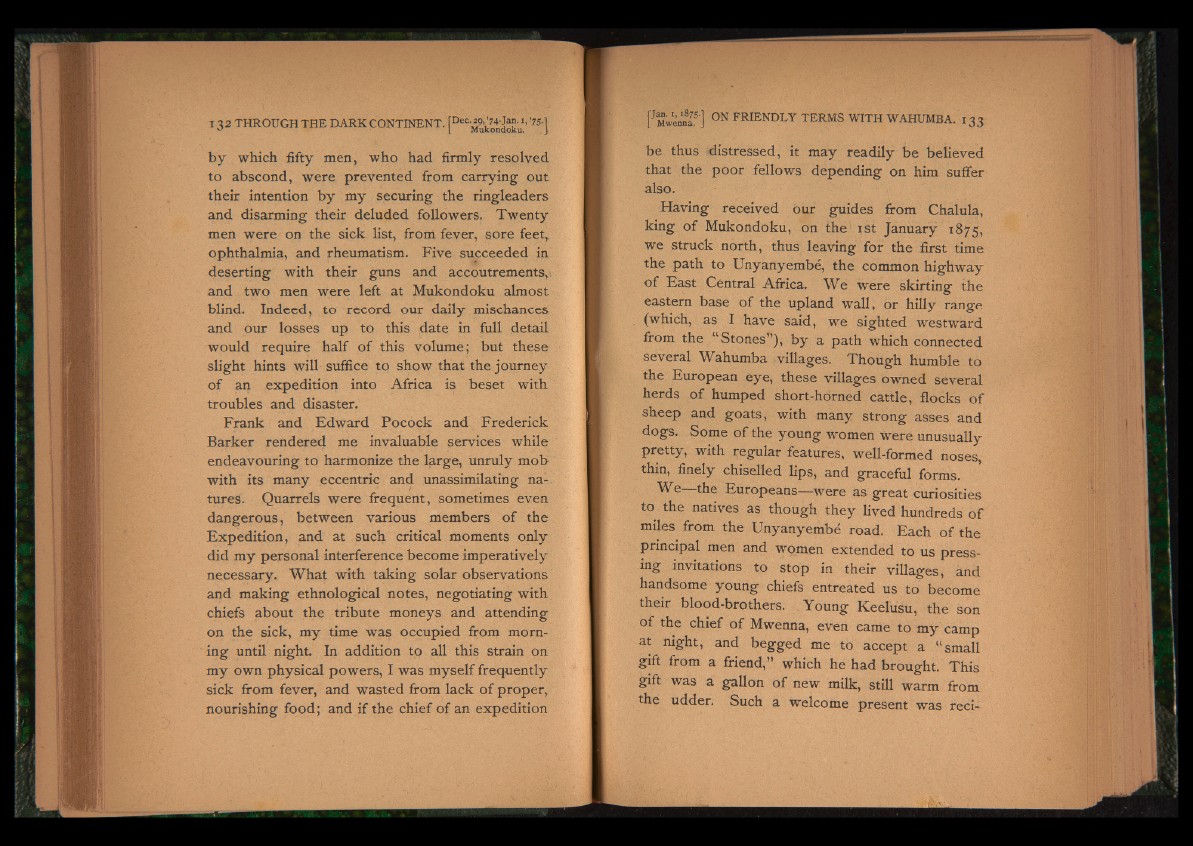
b y which fifty men, who had firmly resolved
to abscond, were prevented from carrying out
their intention b y my securing the ringleaders
and disarming their deluded followers, Twenty
men were on the sick list, from fever, sore feet,
ophthalmia, and rheumatism. Five succeeded in
deserting with their guns and accoutrements,',
and two men were left at Mukondoku almost
blind. Indeed, to record our daily mischances
and our losses up to this date in full detail
would require half o f this volume; but these
slight hints will suffice to show that the journey
o f an expedition into Africa is beset with
troubles and disaster.
Frank and Edward Pocock and Frederick
Barker rendered me invaluable services while
endeavouring to harmonize the large, unruly mob
with its many eccentric and unassimilating na-.
tureS. Quarrels were frequent, sometimes even
dangerous, between various members o f the
Expedition, and at such critical moments only
did my personal interference become imperatively
necessary. What with taking solar observations
and making ethnological notes, negotiating with
chiefs about the tribute moneys and attending
on the sick, my time was occupied from morning
until night. In addition to all this strain on
my own physical powers, I was myself frequently
sick from fever, and wasted from lack o f proper,
nourishing food; and if the chief o f an expedition
be thus distressed, it may readily be believed
that the poor fellows depending on him suffer
also.
Having received bur guides from Chalula,
k in g o f Mukondoku, on the is t January 1875,
we struck north, thus leaving for the first time
the path to Unyanyembe, the common highway
o f East Central Africa. W e were skirting the
eastern base o f the upland wall, or hilly range
{which, as I have said, we sighted westward
from the “ Stones” ), b y a path which connected
several Wahumba villages. Though humble to
the European eye, these villages owned several
herds o f humped short-horned cattle, flocks o f
sheep and goats, with many strong asses and
dogs. Some o f the young women Were unusually
pretty, with regular features, well-formed noses,
thin, finely chiselled lips, and graceful forms.
W e— the Europeans— were as great curiosities
to the natives as though th ey lived hundreds o f
miles from the Unyanyembe road. Each o f the
principal men and women extended to us pressing
invitations to stop in their villages, and
handsome young chiefs entreated us to become
their blood-brothers. Young Keelusu, the son
o f the chief o f Mwenna, even came to my camp
at night, and begged me to accept a “ small
gift from a friend,” which he had brought. This
gift was a gallon o f new milk, still warm from
the udder. Such a welcome present was reci